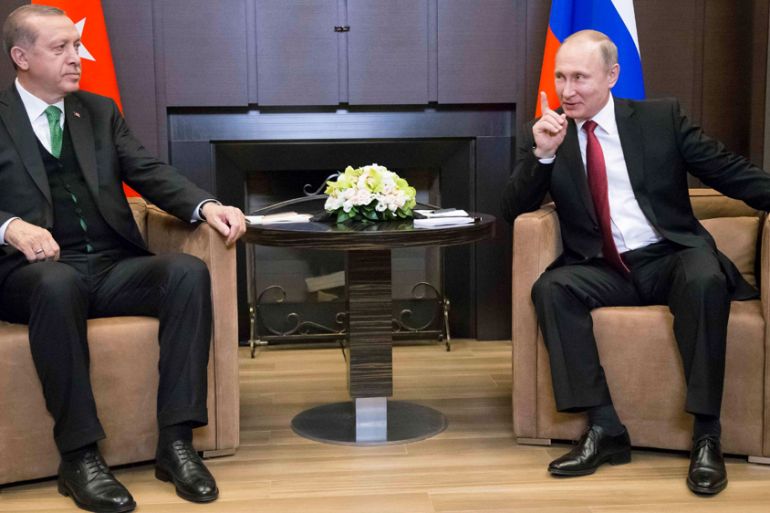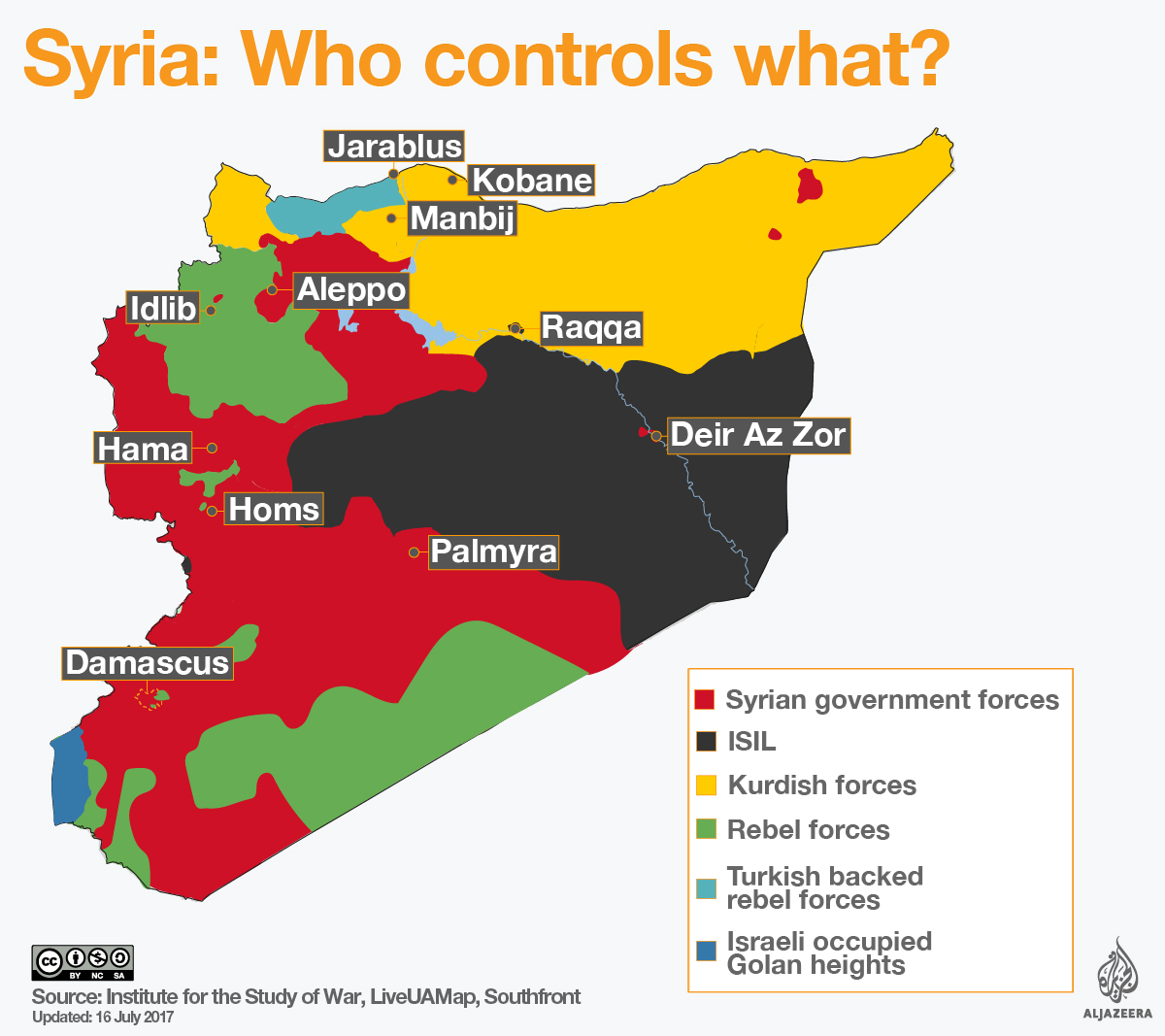Turkey and Russia push for safe-zones in Syria
Opposition returns to talks in Astana, Kazakhstan after walking out on Wednesday over air strikes in Syria.

The presidents of Russia and Turkey are pushing for the creation of safe-zones in war-torn Syria as talks were expected to resume on Thursday in Kazakhstan between the government and the opposition.
Meeting in the Russian resort town of Sochi, Recep Tayyip Erdogan and Vladimir Putin expressed hope on Wednesday that the Syrian government and the opposition would adopt this latest proposal to “de-escalate” the conflict, which has run now for six years and claimed some 400,000 lives.
Keep reading
list of 4 itemsWorld Food Programme to end general assistance in northwest Syria
Erdogan open to meeting al-Assad but not to withdrawal from Syria
Middle East Roundup: What’s going on with Saudi Arabia and China?
“We both proceed on the basis that – and this is our common position – the creation of safe zones should lead to further pacification and cessation of hostilities,” said Putin.
Turkey and Russia are deeply entangled in the war in Syria, including each having troops on the ground – Ankara supporting various Syrian opposition factions and Moscow backing President Bashar al-Assad’s forces.
READ MORE: Trump, Putin ‘seek Syria ceasefire’ in first conversation
The opposition suspended its participation at the talks in Astana, the Kazakh capital, on Wednesday in protest of air attacks that hit areas under their control in Syria, demanding a halt to the government’s bombardment.
The Syrian armed opposition returned to the talks on Thursday, the RIA news agency reported.
|
|
Russian representatives had presented the rebels with a proposal for four “de-escalation zones” in Syria where the warring sides would be separated by “security lines”.
“About terrorists, in spite of the creation of these zones, the war on terror will be ongoing – against such organisations as so-called Islamic State [ISIL], Jabhat al-Nusra, and those ones that are put on the list of terrorist organisations approved by the United Nations,” Putin said.
Putin also said Russian and Syrian government jets would halt flights over the specified zones if all sides respect the ceasefire.
The proposal presented to the opposition in Astana delineates four zones in Syria where front lines between the government and opposition forces would be frozen and fighting halted, according to a statement made by the opposition.
The four zones include areas in the provinces of Idlib and Homs, the Eastern Ghouta suburb outside Damascus, and an area in the south of the country.
The zones, according to the proposal, would be monitored by international observers and allow for the voluntary return of refugees.

“We won’t admit the emergence on our southern borders of enemy enclaves that would endanger our territorial integrity and security,” Erdogan said.
Late Wednesday, Syria’s foreign ministry said Damascus is “fully backing” the Russian initiative on the four ceasefire areas, according to the state-run SANA news agency.
But Ahmed Ramadan, an opposition representative, told The Associated Press that the opposition had requested a written answer on a number of questions, including why the ceasefire would only be in effect in the four areas instead of a nationwide truce.
FEATURE: What would safe zones mean for the Syrian conflict?
This is the fourth round of talks in Astana since January. Separately, there have been five rounds of UN-sponsored Syria peace talks in Geneva since 2012, but none have led to a sustainable ceasefire.
Later on Wednesday, Staffan de Mistura, the UN special envoy for Syria, called on the opposition to return to the talks in Astana “because what is important is also to look at the possibility of an outcome on a de-escalation”. He stressed the importance of not destroying “the opportunity of good news” related to this issue.
|
|